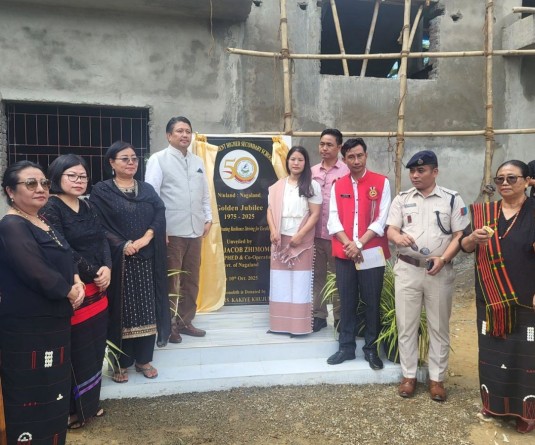
Kohima, July 19 (MExN): Food insecurity was present in Nagaland, especially among lower income groups, with 62 percent reporting having two meals daily, while 38 percent reported three meals per day.
The utilization of key maternal and child health and nutrition services also remain weak in Nagaland, needing concerted efforts for improving antenatal care for the pregnancy and focus on increasing antenatal during the first trimester.
However, the prevalence of ‘stunding’ among under-five children decreased from 39 to 29 percent over the decade, and was lower than the national average of 38 percent as per the National Family Health Surveys done in 2005-06 and 2015-16.
The information, among others, were highlighted during a dissemination workshop on study of ‘Nutrition and its Determinants and Strategies in Nagaland,’ held at the Directorate of Health & Family Welfare Kohima on July 19, based on the surveys.
A DIPR report stated that Dr. Aarushi Bhatnagar, Health Economist, The World Bank in her Power Point Presentation noted that in 2016, the World Bank-financed Nagaland Health Project included a US$15 million component to provide technical and financial support to strengthen the implementation of the communitization strategy.
She said that in Nagaland, only 36 percent of mothers initiated breastfeeding immediately after birth and 84 percent feeding colostrum to the child.
Bhatnagar also stated that woman should also be given co-chair appointment and training for improving women's participation in decision making.
For building capacity for the delivery of nutrition service and strengthening intersectoral coordination for nutrition should be done for the frontline workers (ASHAS and Anganwadi workers) and facility-based providers for effective delivery on nutrition services.
Principal Secretary, Health & Family Welfare, R. Ramakhrishnan, IAS, in his keynote address said the department of H&FW and its allied departments should put in more efforts to study the key maternal and child health and nutrition service since it still remains weak in the state which may be caused due to the traditional upbringing, genes, climate condition etc. He asked the ASHAs and the Anganwadi workers to have more interactions with pregnant mothers as the state lacks appropriate knowledge and application of maternal, infant and young child feeding practices.
Ramakhrishnan also added that the traditional Naga kitchen which is always smoky should be done away with and should be fitted with chimneys. He also said our traditional baby food for the infants is harmfully affecting the infant health. He also asked the H&FW department and its allied departments to work together to save the mothers, women and children in all health issues.
Dr. Atoshe Sema, Additional Project Director of Nagaland Health Project, who chaired the programme said the workshop has been funded by the South Asia Food and Nutrition Security Initiative (SAFANSI) and acknowledged the work led by Patrick Mullen and Dr. Aarushi Bhatnagar. He also thanked the UK Aid from the UK government and the European Commission (EC), the South Asia Food and Nutrition Security Initiative (SAFANSI) and the World Bank team for their contribution towards the workshop and the survey carried out.




